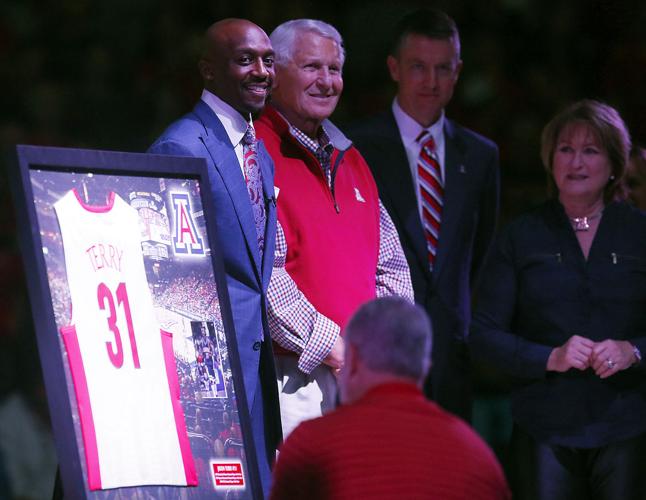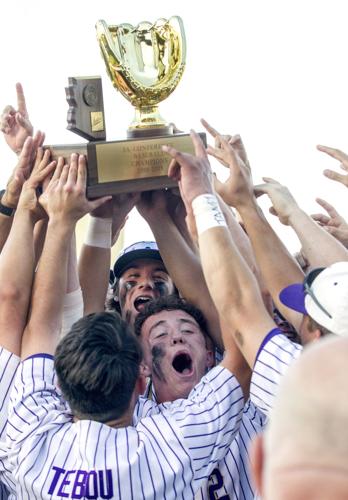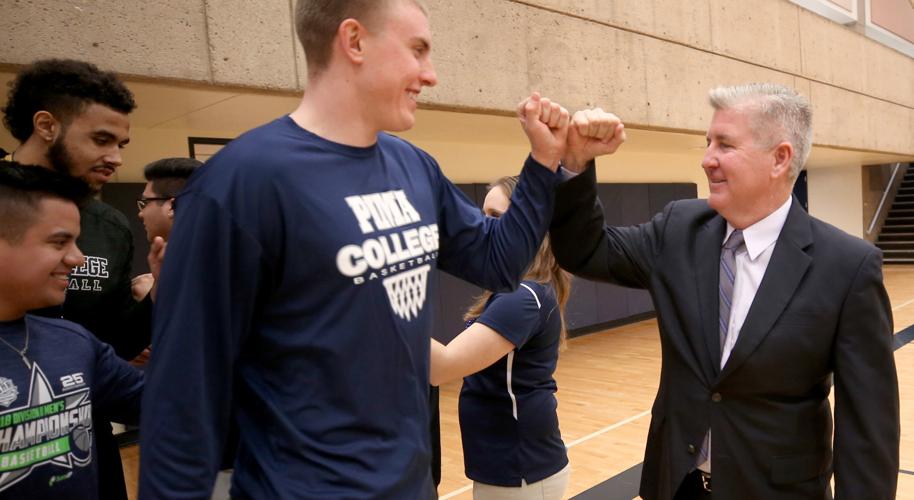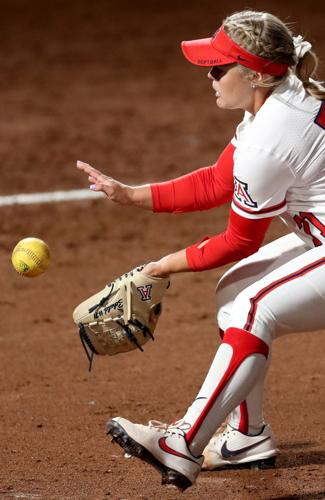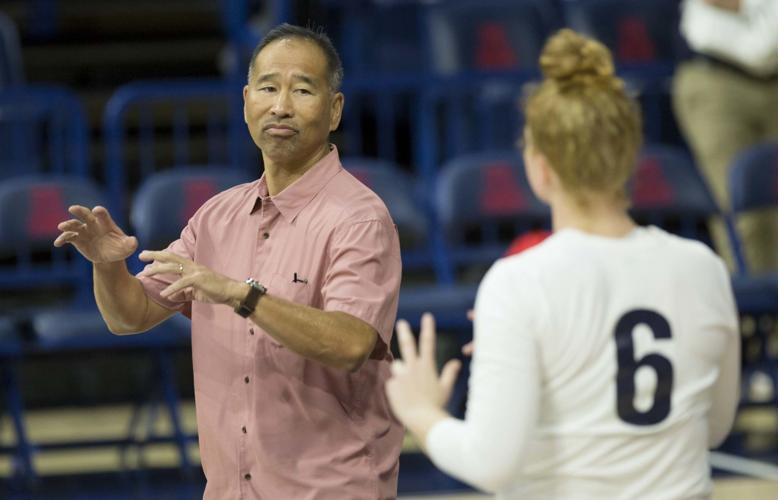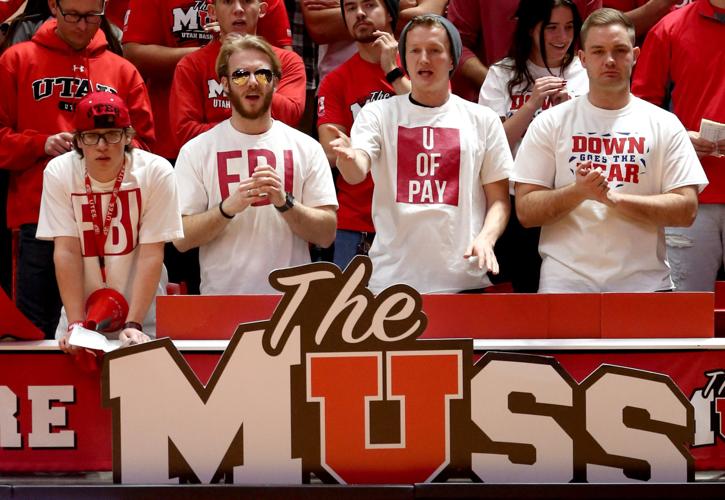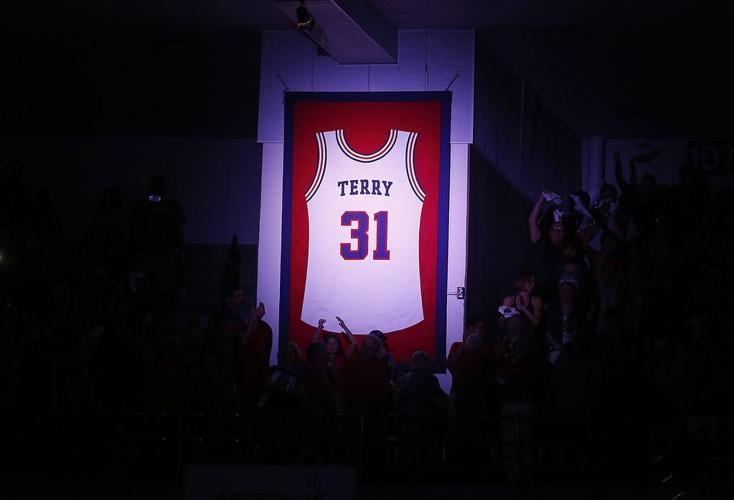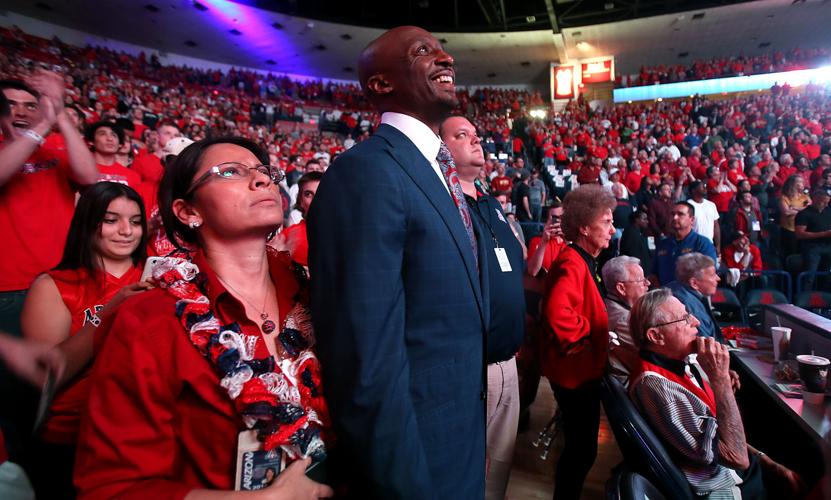The Star's longtime columnist says Jason Terry joining Sean Miller's staff "could be the biggest challenge of his basketball days." Plus, the latest news in Southern Arizona and Pac-12 sports.
I parked at a cemetery across the street from old Mac Court and walked into Oregon’s basketball arena to watch Arizona’s final practice of the 2007-08 regular season.
The Wildcats would lose to the Ducks a day later, finishing the conference season 8-10, their worst since 1984.
Kevin O’Neill, the interim head coach, was at one end of the court with all of the players. I’m not saying O’Neill assaulted his players with inappropriate language, but, um, let’s just say it wasn’t Sunday school.
At the other end of the court, distanced from O’Neill’s intense workout, stood UA assistant coaches Josh Pastner and Miles Simon, two of the most well-known personalities of the Lute Olson years.
O’Neill didn’t consult either. They shot layups, chatted with those on the UA support staff, and paid no attention to O’Neill’s histrionics. The practice concluded an hour later. Only then did Simon and Pastner join the players as they dispersed, shooting jump shots on their own as O’Neill left the court.
It was my first realization that whatever happened in the Lute Olson years — no matter how big your name or your legend at McKale Center — carried little or no weight with another coach.
That’s what came to mind when Jason Terry’s name circulated last week as an almost certain addition to Sean Miller‘s 2020-21 coaching staff.
My reaction was to shout “DON’T DO IT JASON!,” fearing he will suffer the same fate as Simon and Pastner and be as invisible as Wildcat 1994 Final Four stars Damon Stoudamire and Joseph Blair were on Miller’s Arizona staffs.
But Terry is 42. He’s a man, as Oklahoma State football coach Mike Gundy might say. Terry has seen it all in his post-Arizona days. He played for 11 NBA coaches, four of whom — Lon Kruger, Jason Kidd, Kevin McHale and Don Nelson — were fired.
Terry is an I’ll-make-this-work personality, but returning to Tucson could be the biggest challenge of his basketball days.

Former Arizona Wildcat, Jason Terry, watches the scoreboard as the Wildcat video is played before the start of a game against USC game at McKale Center in Tucson on Feb. 19, 2015. Photo by: Mamta Popat / Arizona Daily Star
In Terry’s 19 pro seasons his teams finished everywhere from first to last. He bought into his different teams and coaches with such vigor that he got tattoos of the Boston Celtics leprechaun, an NBA championship trophy emblematic of his Dallas Mavericks years, and even a Brooklyn Nets tattoo, a memory of a single season in which he never started a game.
One thing the personality-blessed Terry would bring back to Tucson is a happy face, which has been in short supply.
But he must also ask himself what change did Stoudamire bring to Miller’s teams? None.
What impact did former Washington coach Lorenzo Romar have on Miller’s medieval offense? None.
It’s my opinion that Terry will be hired to buy Sean Miller some goodwill and — given that Miller’s contract expires in two years — some time.
Terry surely sees the opportunity to return to his alma mater as his last best chance to get his foot in the door of college basketball coaching. Perhaps he sees himself as Arizona’s head coach some day, and, if that day ever comes, it would surely be celebrated by every UA fan holding onto hope that McKale Center will again have the feel-good vibe that it had under Olson.
But reverting back to the good, old days isn’t the answer. They were good. They are old. They are gone.
UCLA hired 1995 national championship point guard Tyus Edney — the man who made the miracle coast-to-coast bucket against Missouri to save the Bruins from elimination — to help connect with a shrinking Pauley Pavilion fan base. Edney has twice been involved in staff firings by the Bruins and is out of coaching.
Olson himself hired former head coaches like Jim Rosborough and Tony McAndrews — both Final Four assistant coaches under Olson at Iowa — but neither impacted Olson’s X’s and O’s nor his approach to being a head coach.
To his credit, Olson permitted his assistants to be public figures — to have a voice — which added to the family atmosphere at McKale.

Jason Terry’s jersey is lit up for the first time as it’s retired at McKale Center in Tucson on Feb. 19, 2015. Photo by: Mamta Popat / Arizona Daily Star
That’s surely what Terry envisions if he is to coach at Arizona. That’s not reality. This isn’t 1998.
In college basketball, it’s all about the head coach. Jason Terry, bless him, is about to find out that his old jersey No. 31, hanging on the wall at McKale, won’t help the Wildcats win a ballgame.
Sabino High School's baseball streak interrupted

Sabino players celebrates after winning the 3A State Championship game over Sahuarita 3-0 in Mesa, Monday, May 13, 2019.
When the high school sports season was canceled, defending state baseball champion Sabino High School was undefeated, 9-0, and looking every bit the team that could win a third consecutive state championship game.
“We had a real chance for this group of seniors to win 100 games in their career,” said longtime Sabino and Sahuaro pitching coach Tim Gillooly. “We’re not the only ones going through this, but we had something special. I hope it’s not forgotten.”
Last weekend, Gillooly and Sabino head coach Shane Folsom went a bit beyond coaching. They mounted two of Sabino’s large lawn mowers and spent much of the day grooming the Sabercats’ baseball facility, infield and outfield.
“It made us feel good,” Gillooley said. “We’ll keep doing it until baseball comes back.”
Six Sabino seniors have accepted scholarships to play college baseball. Catcher Brayden Graham, who was hitting .500, will play in the ACCAC for Paradise Valley College. Pitcher Drew Calloway, who was averaging almost two strikeouts per inning, will also play in the ACCAC, at Arizona Western.
Infielder Jacob Wiltshire, hitting .538, will play at New Mexico State. Morgan Altherr, hitting .450, will play at Colorado-Colorado Springs. Infielder Dylan Tebou will play baseball at Williston State in North Dakota, and catcher Jack Langan will play at Cornell College in Iowa.
“We’re going to schedule a banquet whenever it’s possible,” said Gillooley. “We want the kids to have some closure on what could’ve been a very special season.”
Brian Peabody's connection to D-1 reaches 23

Head coach Brian Peabody bumps fists with forward Robert Wilson at last year’s rally for the Pima men’s basketball team. The Aztecs return to the national championships after finishing second last season.
In winning more than 500 basketball games as a basketball coach at Salpointe Catholic High School, Ironwood Ridge High School and Pima College, Brian Peabody‘s teams have consistently attracted the attention of college basketball recruiters.
It’s not uncommon to talk to the 1980s guard for Dick McConnell‘s Sahuaro High teams and hear him say “we had coaches from UTEP, Pepperdine and Liberty here this week.”
A few days ago, Jake Lieppert — a third-team NJCAA All-American for Peabody’s 2019-20 team — signed to play at Rice. Lieppert became the 23rd player from Peabody’s high school and Pima teams to sign/play with a Division I school. Here’s the other 22 of that impressive list:
Will Porter, Stephen F. Austin
John Ash, Arizona
Fern Tonella, Davidson
Jason Dickens, LMU
Alize Travis, Northern Illinois
Matt O’Boyle, Appalachian State
Kennedy Koehler, UC Davis
John Shurina, UC Davis
Daniel Waddy, Saint Mary’s
Austin Smith, Liberty
Damir Suljagic, Texas Tech
Kwintin Williams, UConn
Ed Tonella, UConn
Rashad Smith, Grand Canyon
Brian Stewart, Washington State
Deion James, Washington State
Brian Smith, New Mexico
Mitch Lightfoot, Kansas
Jeremiah Bailey, Pacific
Justin DeBerry, Lafayette
Tyler Davis, Dartmouth
John Glaser, Portland State
Seniors' return creates roster crunch at UA, with more softball players opting to return

Arizona's pitcher Marissa Schuld gets a gentle comeback on a sacrifice bunt by Team USA's Bubba Nickles in the third inning of an exhibition game at Hillenbrand Stadium, February 18, 2020 Tucson, Ariz.
The inevitable blowback from the NCAA’s decision to allow 2020 seniors in spring sports to retain their eligibility in 2021 has arrived at Arizona softball coach Mike Candrea‘s front door.
The Wildcats are likely to bring seven seniors back, including All-Americans Jessie Harper and Alyssa Palomino-Cardoza, along with eight incoming freshmen, the nation’s No. 1 ranked recruiting class. That’s essentially a 15-person recruiting class. So it wasn’t much of a surprise last week when UA sophomore pitcher Marissa Schuld, the state of Arizona’s 2017 and 2018 Gatorade Player of the Year, announced she will transfer.
She joins four other ex-Wildcats in the transfer process: junior infielder Ivy Davis, junior outfielder Jenna Kean, senior outfielder Carli Campbell of Canyon del Oro High School and sophomore pitcher Vanessa Foreman. College coaches and administrators are learning about the new-normal of their sports day after day.
Dave Rubio remains positive after longtime assistant resigns

Arizona coach Dave Rubio talks with junior outside hitter Kate Smoot before the Wildcats’ straight-sets victory over Alabama State in McKale Center.
UA volleyball coach Dave Rubio had a stressful week or two, centered around the resignation of longtime assistant coach Gregg Whitis, one of the leading recruiters in NCAA volleyball. Whitis resigned Friday and has returned to his family home in South Carolina. But before Whitis left, he phoned all six of Arizona’s recruits in the Class of 2020 — a group ranked in the top 10 in most volleyball recruiting polls — and reassured them that all is well in Rubio’s program. Understandably, Rubio is worried that two key incoming freshmen living in Mexico and Turkey will not be able to get a visa to enter the country when school reopens.
“There are no answers right now,” he said. “You don’t know what the (personnel) losses will be from one semester to the next. You just try to remain positive and share those feelings with your players.”
Utah plans to reduce capacity of basketball arena

Utah fans in the student section, sporting shirts alluding to the Wildcats legal troubles, watch as Arizona puts another bucket down against the Utes in the first half of their Pac-12 game at the Huntsman Center, Thursday, January 4, 2018, Salt Lake City, Utah.
Utah athletic director Mark Harlan, an Arizona alumnus and former assistant athletic director at the UA, is among the first in the Pac-12 to be proactive in understanding the massive changes likely to take place in college sports. Harlan announced last week that Utah will reduce capacity of the Huntsman Center from 15,000 to 8,500 next year, and place curtains in front of upper deck seats. Utah has averaged close to 11,000 fans the last few seasons — No. 2 behind Arizona in Pac-12 basketball — but those are tickets sold.
In reality, Utah averaged about 8,000 fans last season. Ute coach Larry Krystkowiak plans to use the new atmosphere at the Huntsman Center to his advantage. “The purpose is really to give us the best chance to win — to really create a home-court advantage for student-athletes and coaches,” Krystkowiak said. Who’s next? Oregon? Even with Top 25 teams, the Ducks have had difficulty averaging 9,000 fans in 12,500-seat Matthew Knight Arena.
Tucson's Scott Thompson has HOF weekend wiped out by virus

Former UA basketball assistant Scott Thompson poses for a photo in 2005. Photo by Benjie Sanders / Arizona Daily Star
Scott Thompson, one of Lute Olson‘s original assistant coaches at Arizona in 1983-84, was to be inducted into the Quad Cities Sports Hall of Fame on May 17 in Davenport, Iowa. That ceremony has now been put on hold. Thompson was a three-year starter for basketball teams coached by his father, Herb, at Moline High School. He then started for Olson’s Iowa teams, averaging 19.7 in 1976, becoming a second-team All-Big Ten player. Thompson left Arizona in 1988 to be the head coach at Rice, followed by head coaching jobs at Wichita State and Cornell. After surviving a long battle against cancer, Thompson moved back to Tucson to become the lead fundraiser for the Arizona Cancer Center.
Former Ironwood Ridge softball standout shines in the Ivy League classroom

Baylor catcher Robin Landrith. Photo courtesy of Baylor athletics
After 20 seasons as the baseball coach at Flowing Wells High School, former Arizona catcher David Landrith returned to coach Pusch Ridge Christian High School a year ago. Landrith’s club was 5-3 this season before prep baseball was canceled in Tucson. At about the time Pusch Ridge shut down, Landrith learned that his daughter, former Ironwood Ridge High School catcher Robin Landrith, was chosen to the Baylor Bears’ All-Decade team.
Robin was a four-year starter for Baylor, playing in four NCAA tournaments. Since graduating from Baylor, Robin earned her Masters Degree in Philosophical Theology at Yale University, and currently is finishing the second year of her PhD in Historical Theology at Boston College. While at Yale she was a volunteer assistant softball coach and was a volunteer assistant softball coach at Boston College last season. Robin took this season off due to her obligations as a teaching assistant but plans to return to coaching next year.
My two cents: Expect COVID-19 pandemic to contract drama, more force majeure clauses
Since the Pac-12 basketball tournament was canceled, Colorado coach Tad Boyle has scored the league’s most significant “victory,” in my opinion.
Boyle was awarded a $105,000 bonus for making the Buffaloes a lock to be included in the NCAA Tournament, their first since 2016. But Boyle didn’t keep the money; he returned it to CU athletic director Rick George to help the school’s budget crisis.
Boyle also took a 10% pay cut off his yearly base salary of $1.8 million. CU football coach Karl Dorrell also took a 10% cut off of his $3.2 million contract.
Not all wealthy football/basketball coaches at Pac-12 schools have followed Colorado’s coaches. That’s because very few schools included “force majeure” clauses in contracts with their coaches.
A force majeure clause would account for “extraordinary events” such as a pandemic. An easy prediction: henceforth, most Division I athletic departments will include language in coaching contracts that will make “force majeure clauses” a staple.
So what happens if a coach getting paid $2 million or so refuses to take a pay cut during the COVID-19 pandemic?
I wouldn’t be surprised if ultimately it comes down to an athletic director calling the coach’s bluff. Even if the coach threatens legal action, the AD might reply with, “Go ahead, sue. We can’t pay. We’re out of money — and then you’ll be unemployed.”


